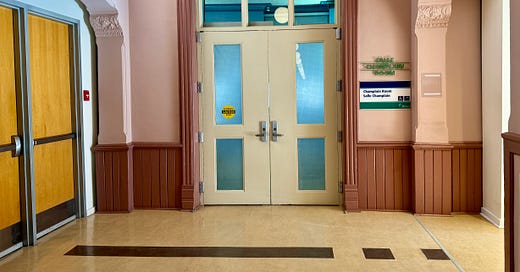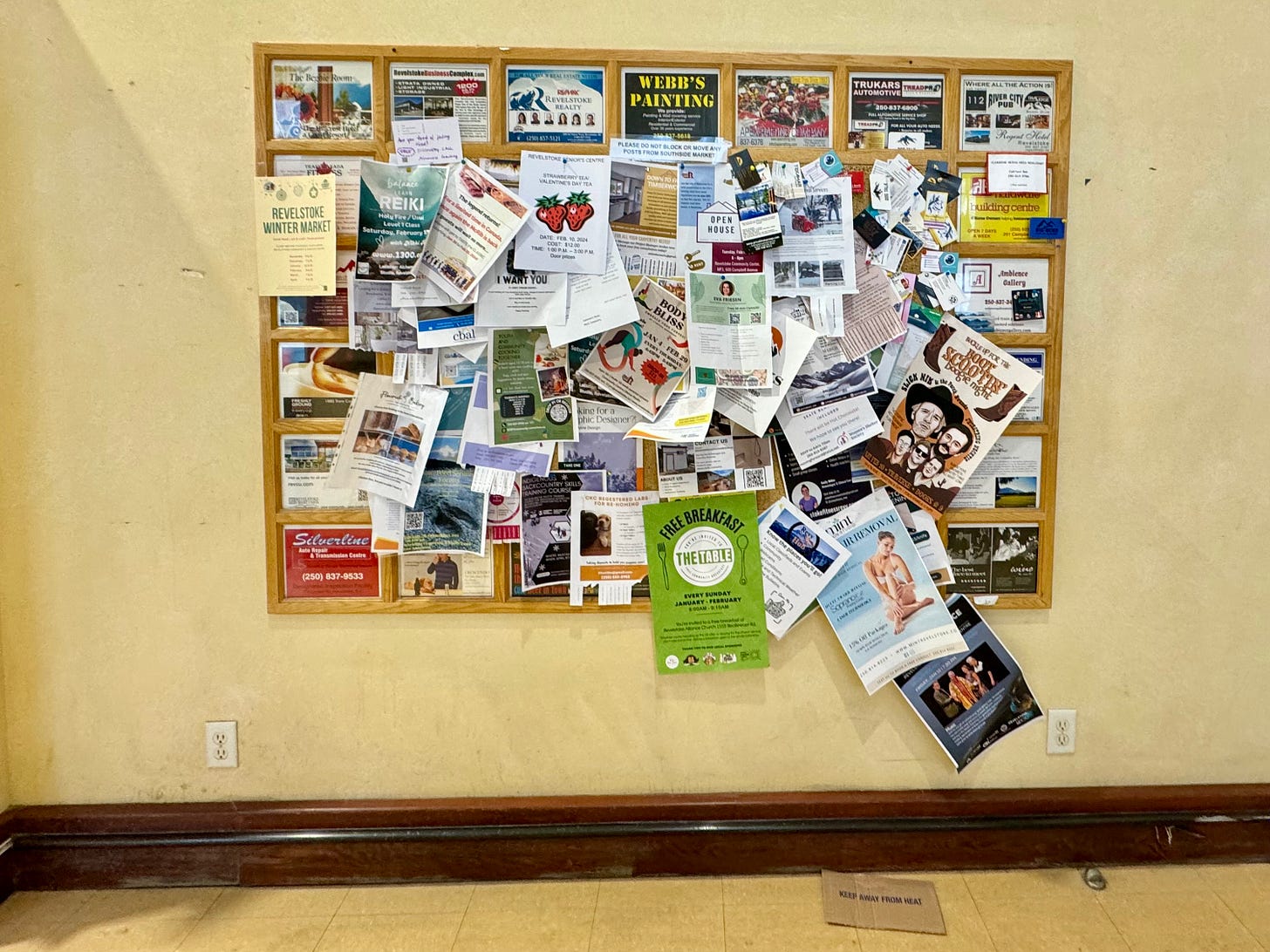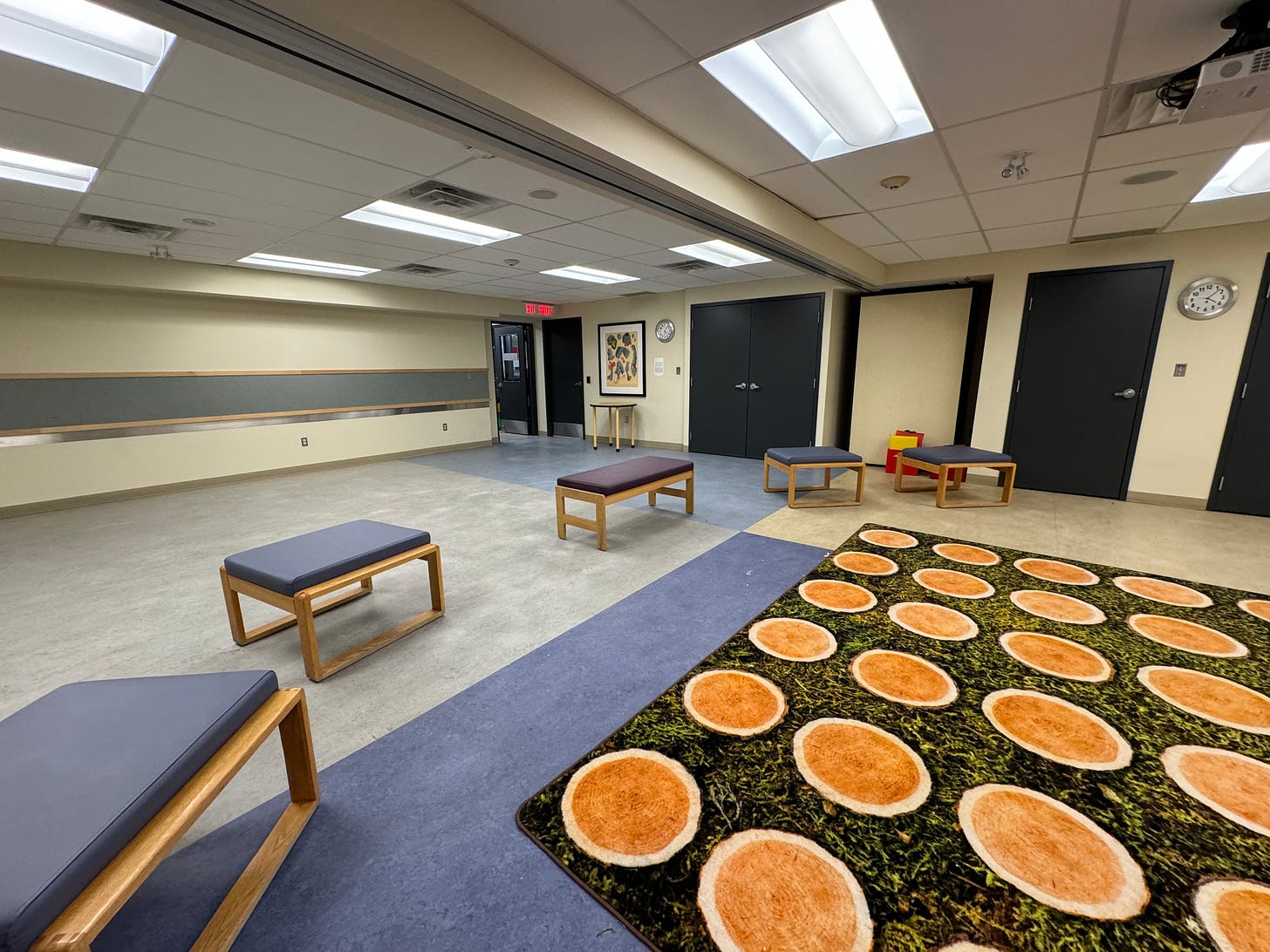Fix Trust in City Hall 3: Three Quick and Easy Wins to Start Regaining Public Trust
Design public engagement as if we truly wanted the public to engage.
This is the third in a series of common sense solutions for restoring trust in city hall. These ideas originate from Dave Meslin’s Teardown: 100 Remedies for a Broken Democracy.
Rebuilding trust in City Hall is not going to happen overnight. And that trust can disappear with one wrong move from the city leadership.
But for cities that genuinely want to rebuild public trust, there are a couple of quick and easy wins they could implement to show the public they are serious.
Here are three modest ideas for rebuilding public trust that cities should consider.
1. Make Committee meetings more welcoming
Have you ever been to a city committee meeting in person?
First, you need to find the meeting, usually hidden behind a big closed door with no welcome signs or directions. Once inside, there are none of the drinks or cookies that you would often find at a public event.
And if you want to speak to committee members? Prepare for a formal “delegation” process, and plan to be kept waiting until … no one knows when.
You’d almost think they didn’t want you there!
If we genuinely want public engagement in city affairs — a first key step in rebuilding public trust — committee meetings would be a good place to start. Here are some suggestions for how cities could make committee meetings more engaging:
Have a greeter at the door welcoming people and answering questions.
Provide drinks and cookies for audience members.
Provide an estimated wait time, or better yet, allow people to get a call back from the Committee clerk 15 minutes before it’s their turn to speak.
Drop the fake formality, and give people the cue that we want an honest and open discussion.
The list goes on. It’s not rocket science. Just think of the way any modern organization would act to increase engagement.
2. Facilitate person-to-person messaging
It’s hard to trust City Hall when the only voice we hear is that of the City. Unfortunately, that’s what happens far too often. For example, with online city consultations, it’s common now for the comments section is turned off, so that participants cannot “cross-talk” and provide their own commentary around the official speaking points.
Of course, people could turn to social media. But communications happens most effectively at the original source. And its next to impossible to recreate a real time chat elsewhere alongside a virtual consultation.
So to restore trust, City Hall should stop trying to “control the narrative” and let the cacophony of voices come in with their opinions. Sure, there will be cranks, especially at the outset. But trust starts with City Hall having the courage to let other voices speak, including when what they say might be critical.
So here are a some ways City Hall can facilitate person-to-person discussions about local issues:
Turn on the chat function in online meetings.
Bring back old school notice boards to city buildings. Allow citizens to contact other citizens with good old-fashioned posters.
Provide chalk boards and digital white boards, where people can leave whatever messages they want for their fellow citizens. Even pose aspirational questions to get the discussion going. (Profanity or abusive comments are less common than people might assume, and easy enough to manage).
And there’s another really important way that City Hall can facilitate person-to-person discussions …
3. Provide more meeting spaces for community groups
The best way to limit public engagement is to deny people the opportunity to meet up, talk and get organized.
Community groups need physical spaces to meet. Virtual meetings only go so far in organizing. Those physical spaces overwhelmingly need to be public spaces.
Right now, groups scramble to find space wherever they can. If not in someone’s living room, then mostly in a church basement, community centre or library.
Here are a few ideas for how a City can help community actors meet:
Open up far more public spaces for community groups to meet. For example, why can’t groups meet in City Hall meeting rooms — even committee meeting rooms — particularly given that most community groups meet after business hours. What about better access to school rooms after hours?
Create a central booking system that makes it easy for groups to find rooms for different audiences. Not one system for libraries, another for each community centre, …
Stop being afraid of criticism
City governments seem to be particularly sensitive to criticism. And so they shut off as many avenues as possible for people to express that criticism. The result, of course, is that people use the few remaining opportunities — such as committee meetings — to vent and let it all out.
A better approach would be to stop trying to control the narrative, and to let people speak their mind. Once a level of trust has been reestablished, the tone will shift to one of mutual respect.
A constructive dialogue could even follow.









this is very good; you're getting at the core of the detail that illustrates how far our City has gone over the last 20+ years to limit ' incoming communications '.
How the City runs their supposedly ' public' consultations is the ultimate demonstration in how to appear as if you're wanting to hear from the citizenry yet limit the rubrics to such an extent that the meta-message is .... " we're only interested in TELLING you all what WE have to say, not in hearing and seriously considering your input ".
Best example is that there is rarely an open mic / forum (of adequate length) atmosphere at these 'public-consultations' ... where everyone can hear the question ... AND the answers ! ie. Keep everything 'under control'. Watson was the worst .... in establishing or riding on this tendency to control the narrative and not be open to constructive comments / criticism . ( At one point even the NCC were doing the same thing.) His / this attitude seems to have infected all City staff.
Now I'm wondering how many staff are in some form of 'comms' related positions ... and are clearly now guided by the attitude of keeping the lid on things ... not finding out what the public might have to offer as ideas or critiques
I only did one presentation to a city committee. 1 min into the process I already knew no matter what was offered they had already made up their mine & were there to look like they were interested in public in put. Shortly after that I realized you do not need the top to create a better future. All you needed was to understand a problem exists. Use community collaboration to test an innovative approach. Once shown it works. Use open source thinking to assure at sometime someone in the financial or political arena well realize why they need to help influence change. As it in the best interest of all the community not just a privileged few. The unfortunate reality of our present situation is GEN X are not problem solvers & the Gold Rush driven GDP used sense 2002 tech boom to bust cannot be fixed using 20th century horse& buggy vision or tools. But the 21st century tools are there, but donot see the vision needed to bring the system into 21st century. As that requires not changing what we humans do,but how we do it and not lose freedom of choice. That does require a country wide collaboration, that gas $$ influencing anything that limit tgeir shortterm financial gain. As not my problem is the first thing you hear. As I am in a position to demand more & give less. Has some short term benefit to the community but does create long term unsustainable problems.